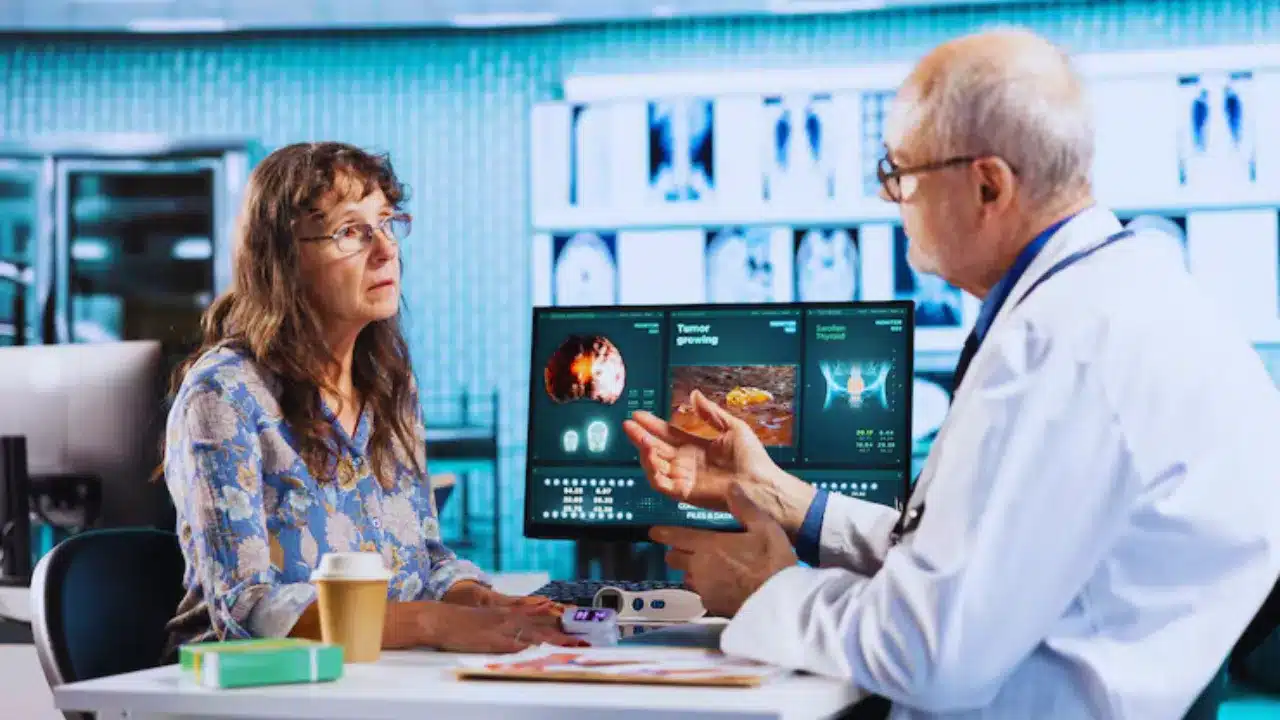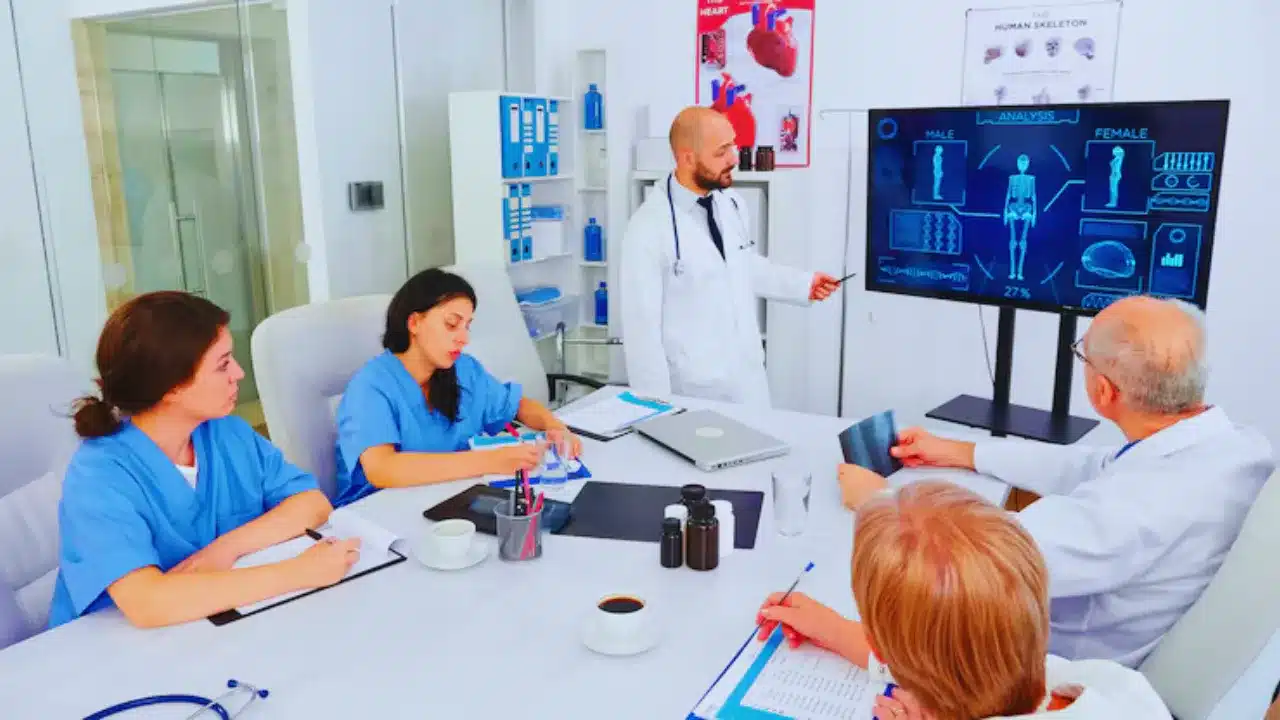Pursuing a BSC in Cardiovascular Technology opens the door to a rewarding career in the healthcare industry, especially within the heart care domain. This specialized undergraduate program is crafted for students who are passionate about medical technology and patient care, particularly in cardiovascular sciences. The course blends theoretical concepts with intensive practical training, equipping students to work confidently alongside cardiologists in hospitals, clinics, and diagnostic labs.
Throughout the program, students become proficient in using advanced medical tools such as ECG machines, echocardiography systems, and cardiac catheterization equipment. They also to interpret diagnostic data, monitor heart health, and assist in invasive and non-invasive procedures. With the rising global demand for cardiac care professionals, this course not only offers strong job prospects but also contributes significantly to patient outcomes and life-saving interventions.
Program Structure and Course Curriculum
Usually lasting three to four years, the BSC in Cardiovascular Technology is broken up into semesters. The curriculum includes core subjects like Anatomy, Physiology, Pathology, and Cardiovascular Pharmacology. Practical modules cover ECG, echocardiography, cardiac catheterization, and patient monitoring. Internships and clinical postings are mandatory for hands-on training in real healthcare settings. The program is designed to build both theoretical and technical proficiency.
| Semester | Subjects Covered | Practical Components |
| 1st | Anatomy, Physiology, Biochemistry | Basic Lab Training |
| 2nd | Pathology, Microbiology, Pharmacology | Clinical Pathology Lab |
| 3rd | Introduction to Cardiology, ECG Technology | ECG Interpretation & Monitoring |
| 4th | Medical Electronics, Patient Care | Patient Monitoring Equipment Usage |
| 5th | Cardiovascular Diagnostic Techniques | Cath Lab Training, ECHO Procedures |
| 6th | Advanced Imaging, Rehabilitation Therapy | Hospital Internship |
Why Choose BSC in Cardiovascular Technology?

Choosing a BSC in Cardiovascular Technology is ideal for students who want to contribute meaningfully to cardiac health and play an active role in patient care. The course provides a perfect blend of science, technology, and clinical application, offering a fulfilling path for those passionate about healthcare. It equips students with practical skills in using diagnostic equipment and monitoring systems vital in detecting and managing heart conditions.
Students work in close collaboration with cardiologists and other medical professionals, directly assisting in procedures like ECG, echocardiography, and cardiac catheterization. This hands-on involvement in life-saving interventions makes the role both meaningful and impactful. The field is constantly evolving, offering continuous learning opportunities and the chance to specialize further. With the increasing prevalence of heart disease globally, trained cardiovascular technologists are in high demand.
Eligibility Criteria and Admission Process
To enroll in a BSc in Cardiovascular Technology program, candidates must have completed 10+2 with Physics, Chemistry, and Biology. Some institutions may also accept Mathematics as an alternative subject. Admission procedures typically include application submission, entrance exam performance (if applicable), and counseling or direct admission based on merit. Private colleges may also conduct interviews or personal assessments. It’s important to check specific requirements of each institute before applying.
Career Scope and Industry Demand
The demand for cardiovascular technologists is steadily growing with the rise in heart-related illnesses globally. Graduates can find employment in diagnostic labs, cardiac specialist centers, and hospitals. Opportunities are also available in research, medical equipment companies, and health tech startups. With experience, professionals can advance to leadership roles or move into academia. The job market remains stable, and skilled technologists are always in high demand across both public and private sectors.
| Role | Work Setting | Expected Salary (INR) |
| Cardiovascular Technologist | Hospitals, Diagnostic Labs | 3 – 6 LPA |
| Cath Lab Technician | Cardiology Departments | 2.5 – 5 LPA |
| ECHO Technician | Imaging Centers, Clinics | 2 – 4 LPA |
| Cardiac Sonographer | Super-specialty Hospitals | 3.5 – 7 LPA |
| Research Assistant | Medical Research Institutions | 2 – 4.5 LPA |
Internship and Practical Training
The extensive internship and practical training component of the BSC in Cardiovascular Technology is one of its greatest advantages. Students are placed in real-life clinical environments such as cardiac care units, cath labs, and diagnostic centers. Under the guidance of experienced cardiologists and technologists, they gain vital exposure to patient care and medical procedures. These internships help bridge the gap between academic theory and practical application. They are for building confidence, refining technical skills, and enhancing overall employability in the healthcare industry.
Top Colleges Offering BSC in Cardiovascular Technology
The BSC in Cardiovascular Technology program is offered by a number of reputable universities in India and elsewhere. In India, top colleges include AIIMS (New Delhi), Sri Ramachandra Institute (Chennai), and Manipal Academy of Higher Education. Christian Medical College (Vellore) and Amrita Vishwa Vidyapeetham (Kochi) also rank highly for this course. These institutes are known for their advanced labs, experienced faculty, and clinical tie-ups.
Admission into these colleges is competitive, with many requiring entrance test scores. Internationally, institutions in the UK, USA, and Australia offer equivalent programs under different titles. Choosing a recognized college ensures better training, internship opportunities, and career support.
Future Opportunities and Higher Studies
Cardiovascular Technology BSC graduates can work in critical care settings, diagnostic labs, and cardiac care units. With experience, many move into supervisory roles or specialized cardiac imaging. Higher studies such as M.Sc. in Cardiovascular Technology or allied health sciences help deepen expertise. Some also pursue research or teaching in medical institutions. International opportunities are also expanding due to the global demand for trained cardiac technologists.
Skills Required for Cardiovascular Technologists
A successful cardiovascular technologist must be detail-oriented and have strong analytical thinking. Proficiency with medical equipment and the ability to interpret complex data are. Good communication skills help in working with patients and doctors during procedures. Emotional stability is also, especially when assisting during emergencies. Time management and adaptability further enhance performance in clinical environments.
Challenges in the Field
Cardiovascular technicians frequently operate in hectic, high-pressure settings. They may be required to assist in emergency surgeries and long procedures, which can be physically and mentally demanding. Keeping up with rapidly evolving technologies also requires continuous learning. Shift work and on-call duties can affect work-life balance. Despite the challenges, the role remains vital and deeply fulfilling in patient-centered care.
Wrapping up
In the rapidly advancing world of medical science, a BSC in Cardiovascular Technology stands out as a career-driven choice for students aiming to combine technology with compassionate care. The course paves the way for diverse job roles such as cardiovascular technologist, cardiac sonographer, and cath lab technician, all of which are crucial to cardiac health management. Graduates are not only prepared for clinical roles but also have the option to pursue further studies or research.
With heart diseases on the rise globally, skilled professionals in this field are more needed than ever. The program’s curriculum ensures a balance between academic learning and real-world experience, building both competence and confidence. Whether working in leading hospitals or diagnostic centers, these professionals make a meaningful impact on patients’ lives. For those looking to enter a field that blends science, service, and stability, this degree offers the perfect starting point.
FAQs
What is the duration of the BSC in Cardiovascular Technology course?
The BSC in Cardiovascular Technology usually spans three years, divided into six semesters. Some institutions add an internship year, making it a full four-year program. This structure ensures in-depth learning and practical exposure. Both classroom education and hospital training are core to the curriculum, offering a solid foundation in cardiovascular care.
What job roles are available after completing the BSC in Cardiovascular Technology?
Graduates can pursue careers as Cardiovascular Technologists, Cath Lab Technicians, ECHO Technicians, Cardiac Sonographers, and more. These roles are in high demand across hospitals, diagnostic labs, and specialty heart care centers. Research positions and roles in medical equipment firms are also open. The scope is diverse and growing rapidly due to the rise in heart diseases.
Are there any certifications required after completing the course?
While not compulsory, certifications in ECG, ECHO, cardiac catheterization, or critical care support can give candidates a strong edge. These certifications validate advanced skills and enhance employability. Many professionals also opt for postgraduate diplomas or master’s degrees. Specialized training helps improve career prospects, especially in competitive job markets.
Is the BSC in Cardiovascular Technology course available in distance education mode?
This course is generally not available through distance education due to its strong emphasis on clinical practice. Real-time patient interaction and hands-on equipment training are vital to success in this field. Institutes require students to attend lab sessions and hospital postings. Online or distance-only formats do not fulfill these critical components.
What are the prospects for international employment in this field?
International demand for cardiovascular technologists is strong, especially in countries with advanced cardiac care systems like the USA, Canada, UK, and Australia. However, most regions require passing local licensing or credentialing exams. Strong academic records and recognized clinical experience help improve international job chances. Language proficiency and region-specific regulations may also apply.
What is the average salary after completing the BSC in Cardiovascular Technology?
Entry-level salaries for cardiovascular technologists in India range between ₹3 to ₹5 LPA. With experience and additional certifications, professionals can earn up to ₹8–10 LPA or more. In foreign countries, the average annual salary can be significantly higher, depending on qualifications and work location. Job roles in private hospitals and research institutes tend to offer better pay.
Can students pursue higher education after completing this course?
Yes, many students opt for M.Sc. in Cardiovascular Technology or allied health sciences. Others pursue specialized diplomas or move into research-oriented postgraduate programs. Higher education opens doors to academic, research, and leadership roles in the field. It’s also beneficial for students aiming to migrate or practice abroad in advanced healthcare systems.










